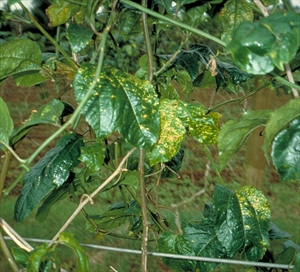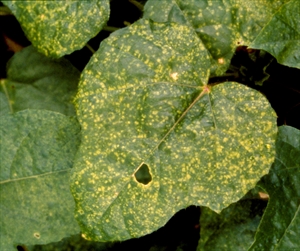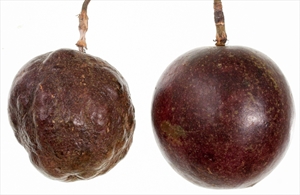- Worldwide distribution. Two viruses occur, either alone or more often together in cultivated and wild passionfruit. An important disease.
- The disease causes distorted leaves and small fruits, but seriousness depends on variety and virus strains.
- Spread is by aphids. The viruses are not seed borne.
- Cultural control: take scions from disease-free plants, and rootstocks from seed; carefully check every plant for symptoms before field planting; avoid planting near known hosts of Cucumber mosaic virus, e.g., banana, capsicum, chilli, cucurbits; weed (i.e., wild passion flowers); plant tolerant hybrids (yellow x purple).
- Chemical control: none recommended.






